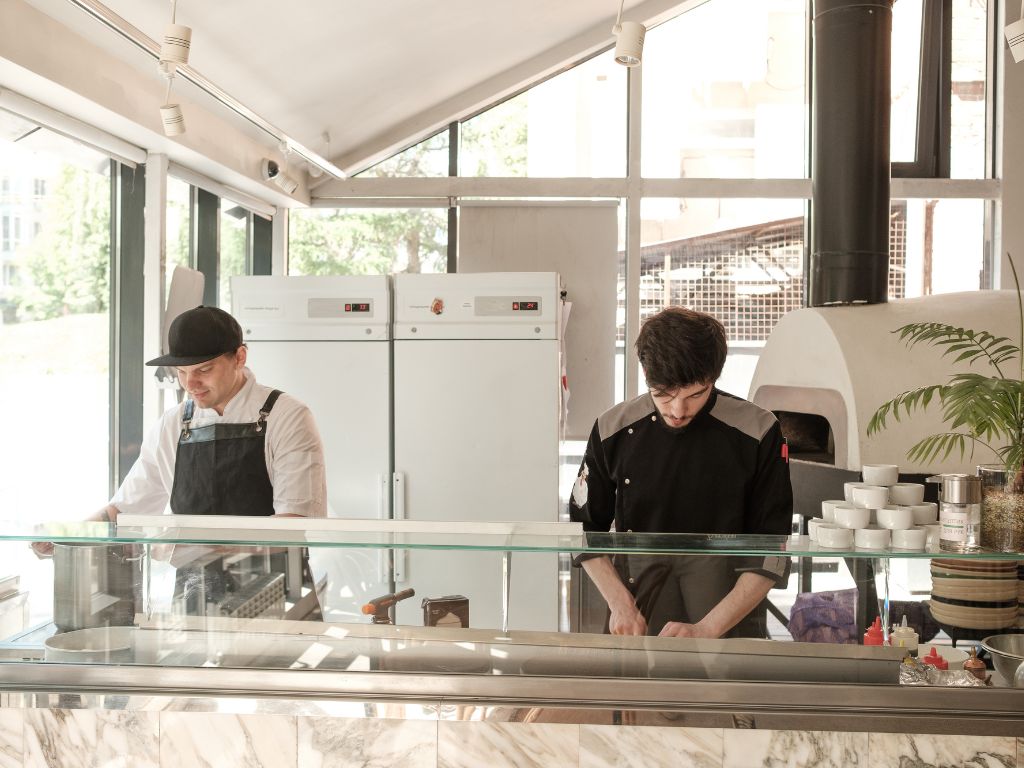Franchise automation: the checklist for saving time without losing quality
March 21, 2025
Franchising is no longer just about McDonald's, Starbucks and the other giants of the sector. Today, it's.., the model has expanded From small regional chains to fast-growing networks, it attracts entrepreneurs from all horizons.
But whether you manage 5 or 500 points of sale, the same challenges recur These include managing inventories, organizing teams, streamlining orders and ensuring a flawless customer experience.
This is where automation makes all the difference. Order terminals, QR codes, paperless payments, automatic inventory management... What was once reserved for large groups is now available to all franchises.
And the figures speak for themselves:
✔ 88 % of franchisees use at least one digital tool to build customer loyalty.
✔ 78 % have digital tools to streamline exchanges within the network.
✔ 98 % of franchisors have invested in digital technologywith concrete results: 77 % of franchisees see a positive impact, and 63 % see benefits from the very first year.
To automate is to stop wasting time on avoidable tasks and concentrate on what really makes a franchise grow.
01. Automate for better management: order, stock, payment...
Ordering and checkout: streamlining the experience and boosting sales
When it comes to efficiency, it's all about ordering and payment.
With the terminals, QR codes and payment at the tableThe customer orders autonomously, the team saves time and service is smoother.
And it's not just a question of speed: these tools also boost sales. In the restaurant business, automatic suggestions on kiosks can increase the average basket by 20 %.
A dessert added with a click, an extra option on a menu... On a network scale, these small details make a real difference to profitability.
Stocks and supplies: ensuring continuity without waste
When you've only got one or two franchisees, managing orders by e-mail or keeping track of stock on an Excel file is fine. But as soon as the network grows, it becomes unmanageable.
A franchisor who centralizes production (with a central kitchen, for example) must ensure that every point of sale has what it needs, with no shortages, no surpluses, no stress.
For this, automated restocking is essential orders are triggered on the basis of actual sales, production is anticipated, and franchisees receive exactly what they need.
Less waste, better stock turnover and head office teams no longer chasing orders.
HR and productivity: supporting franchisees for more efficient management
The franchisor cannot manage the teams of each franchisee. But it can provide him with the right tools as soon as he enters the network. Integrated HR management software enables you to simplify scheduling, track hours worked and optimize staffing requirements.
It's a win-win situation:
✔ Franchisees structure their teams better and avoid scheduling problems.
✔ The franchisor strengthens its support and shows that it doesn't just provide a concept and a logo, but also helps to organize the point of sale.
According to MAPAL OSThe use of workforce management software can reduce labor costs by 21 %.
Marketing and loyalty: local control without losing consistency
A restaurant in Marseille doesn't have the same needs as one in Paris. The weather, consumer habits, rush periods... everything is different. But at the same time brand consistency to keep communication aligned.
With automated, well-structured marketing, each franchisee can adapt its local communication without going off in all directions.
Need a specific promotion on an offer that's doing well in your city? It's easy.
A national campaign to be relayed to all points of sale? All it takes is one click.
The end result: greater local impact, without undermining the brand's image.
88 % of franchisees use at least one digital tool to build customer loyalty, and 72 % of franchisees using digital tools recognize that this has had a positive impact on their outlet's business.

02. Automation: pitfalls to avoid in franchising
Choosing solutions that don't fit your model
Not all franchises work in the same way, and not all tech solutions are suitable for all networks. Loyalty software initially designed for ready-to-wear will not necessarily be adapted to catering needs.
Before investing, you need to define your real needs:
✔ What are the current sticking points? (too much waiting at checkout, poor inventory management, lack of customer follow-up...)
✔ What features are essential (integration with cash register software, multi-site management, order automation, etc.)?
✔ Is the system scalable (able to keep up with network growth without having to redo everything in 2 years)?
The wrong solution can be costly wasted time, franchisee frustration, adoption difficulties...
It's better to test, ask for feedback and make sure that the tool really meets the needs of the network.
Underestimating the human impact
A good tool, badly used, is useless. Automation should not be seen as a constraint, but as an asset. If teams aren't trained, or if the tool is too complex, they won't use it... or won't use it properly.
For a successful adoption:
✔ Clear, effective training for each franchisee and their team.
✔ Start-up support to avoid stumbling blocks.
✔ Reactive support to answer questions in real time.
Automation should simplify the work of franchisees, not add to their mental load.
Neglecting support and transition
Changing habits doesn't happen overnight. A franchisee accustomed to managing stock by hand or taking orders over the phone won't switch to automated software in a single click.
A well-managed transition means :
✔ A gradual roll-out to avoid blockages.
✔ Regular follow-up to adjust and respond to difficulties.
✔ Clear communication on the concrete benefits of the tool.
Good support is what makes the difference between successful automation and costly failure.
03. The checklist for successful automation
Automation is an investment. To reap the maximum benefits, it's best to structure your project from the outset. Here are the steps to follow for a smooth and efficient transition.
Step 1: Define your field requirements
✔ What are the current blocking points?
✔ What repetitive tasks could be automated?
✔ What is the budget allocated to automation?
Step 2: Choose the right tools
✔ Is the tool adapted to the franchise model?
✔ Does it integrate with existing solutions (cash register, inventory, HR, etc.)?
✔ Can it evolve with the network without requiring a complete change in 2 years?
Step 3: Test before deploying
✔ Can we test it on a few outlets before a global rollout?
✔ Has feedback from the franchisees concerned been taken into account?
✔ Does the supplier offer start-up support?
Step 4: Training and supporting franchisees
✔ Is there clear and effective onboarding?
✔ Is the tool easy enough to use?
✔ Is support available to answer questions from franchisees and their teams?
Step 5: Monitor and adjust
✔ What performance indicators should be monitored (time savings, increase in average basket, reduction in errors...)?
✔ Do franchisees actually use the tool? If not, why not?
✔ Can we optimize or adapt the tool to better suit the network's needs?
Need customized support to automate your franchise? Our experts are here to guide you. Contact us now to discuss your needs.
Further reading












